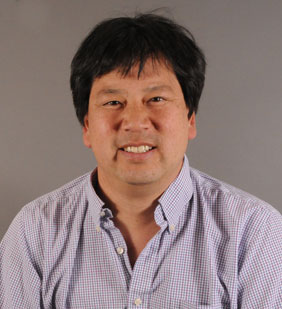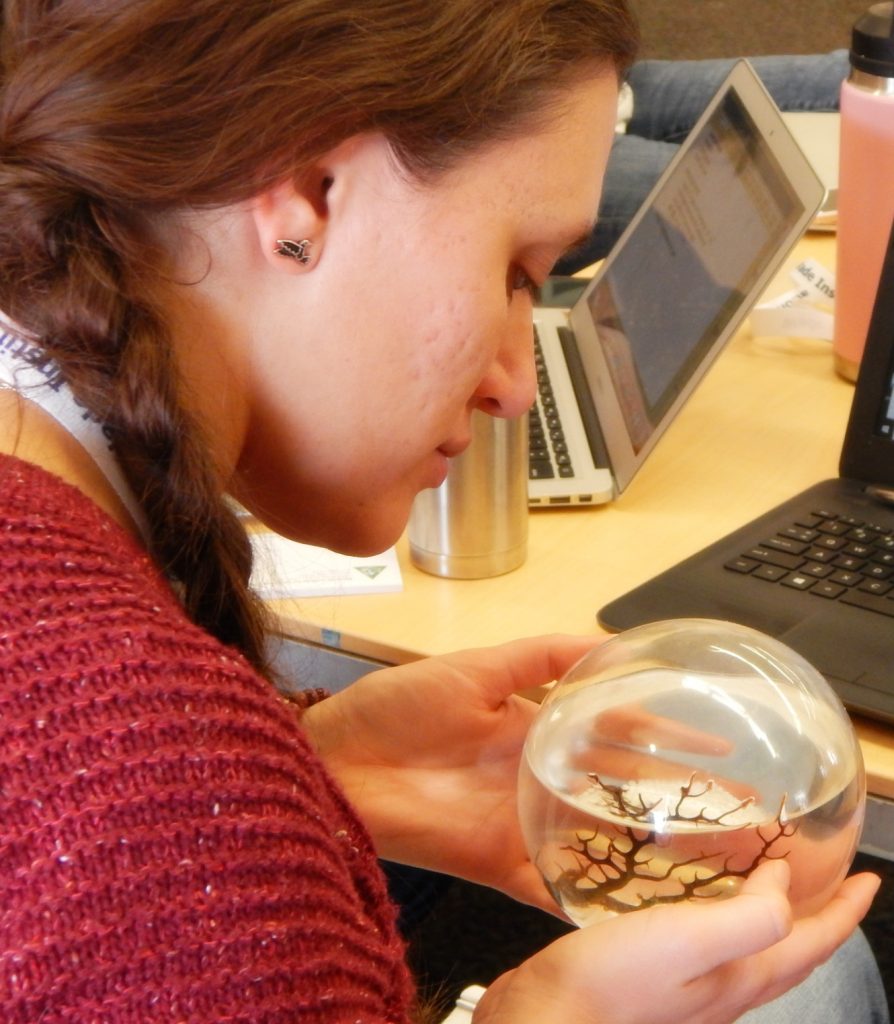Monday, February 3, 2020
For Immediate Release
Exploring Climate Change Through
Transdisciplinary Thinking with Bob Chen
Quincy, MA – Education is an ever-changing landscape of learning. In the field of teaching, new approaches are continually being developed to more effectively support student learning outcomes and achievement. One modern method is called “transdisciplinary thinking.” Designed by a team of faculty at UMass Boston, transdisciplinary thinking is an academic approach involving research that is defined by the problem itself (instead of a discipline) and that is applicable to society. Middle and high school teachers will be introduced to transdisciplinary thinking in climate change research by presenter Bob Chen during the Wade Institute for Science Education’s 2020 Professional Development Institute, Our Climate, Our Communities: Science, Systems, and Solutions.

photo courtesy of Bob Chen
About Bob Chen
Bob Chen is a Professor and Interim Dean at UMass Boston’s School for the Environment and a Board member of the Wade Institute for Science Education. He is a firm believer that education, outreach, and research are all intertwined and that collaborative learning that crosses disciplinary lines is more engaging and productive.
Bob began his career in higher education by teaching undergraduate programs at the University of California San Diego. Though he’d spent most of his life in California, his love for the ocean, the east coast, and an eagerness to stretch his marine chemistry research initiatives to global issues led him to join the faculty at UMass Boston in 1993. As part of the UMass Boston’s School for the Environment, Bob has served as Graduate Program Director, Director of the Center for Coastal Environmental Sensing Networks (CESN) and Interim Dean. He co-led the NSF-funded Boston Science Partnership, a program that promoted the teaching of advanced science in K-12 schools by connecting teachers with university faculty, and co-wrote the collaborative, “Feasibility of Harbor-wide Barrier Systems Preliminary Analysis for Boston Harbor.” His work was recognized through the UMass Chancellor’s Distinguished Award for Teaching in 2014 and the Presidents’ Award of Public Service in 2015.
Over the years, Bob has witnessed an increase in student achievement when the barriers between disciplines were erased. His students were more able to solve large-scale research problems when they thought critically about the problem itself and applied knowledge from varied disciplines. Bob and his UMass Boston colleagues used their observations to develop the teaching approach of transdisciplinary thinking as a way to more effectively engage students in their own learning. The method blends the lines between disciplines and addresses real-world issues through research. Bob encourages his students to solve global problems using the rationale that everything is connected (systems thinking) and by addressing long standing core disciplinary concepts (Big Ideas). He and his students have assessed potential infrastructure issues that could occur in coastal communities as the global climate changes and local ecosystem adapts. Bob’s own research, as an example, has focused on barrier systems to prepare and protect Boston Harbor as sea level rises and storm surge increases due to climate change.
Our Climate, Our Communities: Science, Systems, and Solutions
Beginning in February, 2020, the Wade Institute for Science Education will be holding Our Climate, Our Communities: Science, Systems, and Solutions, a hybrid Professional Development Institute that will empower educators with information and resources to effectively bring climate change concepts to their classrooms. Through a broad phenomenon-based theme, educators will explore examples of best practices in climate change education by engaging in climate and energy investigations, working directly with scientists and engineers, exploring regional resources, and developing their own units and investigations.

Educators will use systems thinking during the Wade Institute’s 2020 Professional Development Institute.
During the Institute, Bob will explore the practice of systems thinking by linking the climate system to educators’ previous understandings of the carbon cycle, water cycle, and flow of energy in Earth’s systems. His presentation will investigate the climate changes, impacts and solutions in Massachusetts communities and enable teachers to develop transdisciplinary thinking by, “thinking outside their disciplinary silos.” Teachers will then apply this methodology to the design of classroom investigations that they can use to engage their students with the complex concepts and rapidly developing issues related to climate change.
To learn more about the 2020 Professional Development Institute, Our Climate, Our Communities: Science, Systems, and Solutions, visit: https://www.wadeinstitutema.org/academic-year-professional-development-institutes/
###
The Wade Institute for Science Education specializes in providing inquiry-based, hands-on, minds-on, science, technology and engineering professional development for K-12 teachers and informal educators. For more information, visit www.wadeinstitutema.org or call 617-328-1515.
